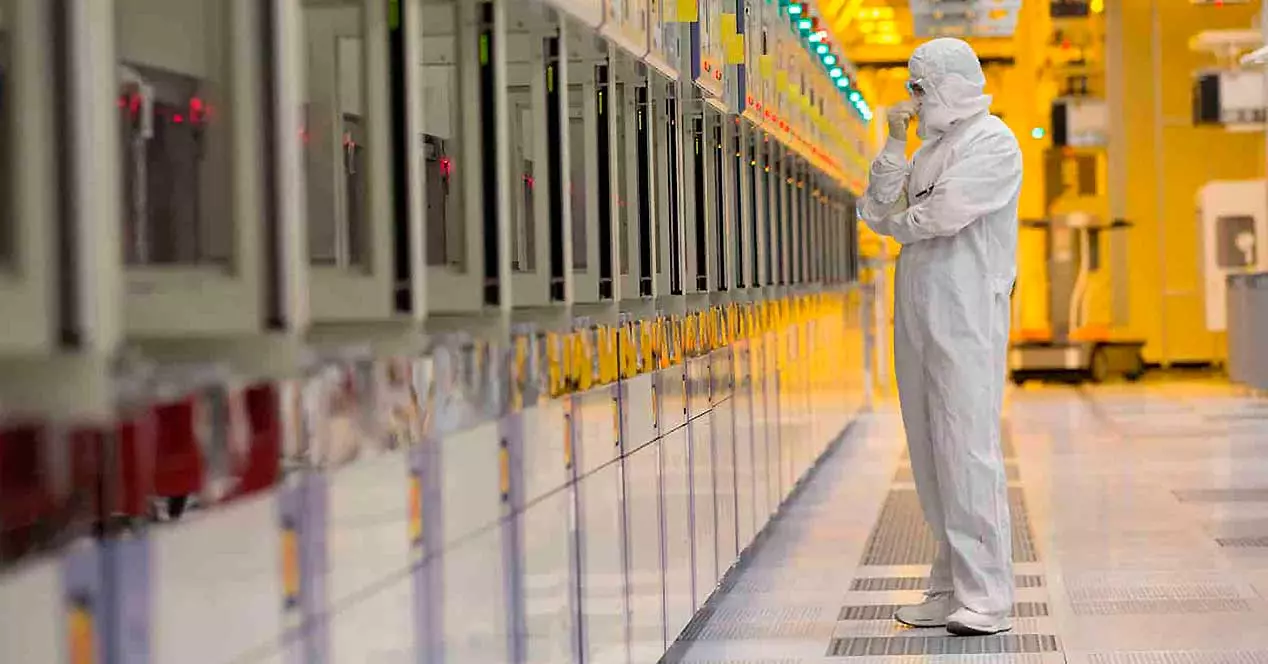
The supply of chips has been cut by everything related to the pandemic and then to the unusual demand from different sectors. This does not stop and with the supply cut greatly, prices and transport costs have skyrocketed in the last year and a half. But although we are already anticipating the end of the crisis according to several industry players, prices could remain high even if everything is restored and the reason is very curious as well as worrying.
No manpower, semiconductor giants’ strategy falters
Amazing to say the least, but it is the reality that the new factories that are about to open are facing. And it seems that all the main companies were assuming that with the current crisis after the pandemic, finding qualified workforce was going to be an easy task, but reality is putting them in their place.
In a global survey drawn up by IPC as a trade association, what we find is that a 90% of the members and interviewees has been harmed by this crisis, a 88% had delays in their orders and the 31% faced logistical or temporary production problems. Shawn DuBravac, chief economist at IPC and principal investigator on the study, had this to say:
Supply shortages and other issues are affecting the global electronics supply chain and all the downstream industries these manufacturers serve. Strong demand is helping the industry’s sales, but shortages are delaying shipments and increasing delays. Manufacturers face higher prices as they compete for a limited supply. This is a global phenomenon that will take a long time to resolve next year.
To alleviate the losses, the prices of everything related to this rose, we are already paying it in most sectors (curiously the NAND Flash are in free fall) so the final cost is being borne by consumers and companies. What no one thought is that there would be no workers for the new FABs and this has raised blisters among managers.
Without workers, investment is useless, in addition, companies no longer retain them
Intel, TSMC and Samsung are going to kick off their new FABs in a short time, some already inaugurated and operating, but the labor problem persists and will persist. The same IPC report that diagnosed the problems of the companies also does it with the workers and the contractual relationship with them.
Manufacturers say they have trouble finding qualified talent and, above all, keeping them. No less than 80% of companies have these drawbacks, which shows that the worker does not feel comfortable, valued or well paid. Therefore, companies are increasing their labor costs by up to 68% of which only one 19% He assured that this measure made them find qualified workers.
The percentage is still minimal, so it is estimated that they will have to increase the labor cost even more, by up to 65% in order to attract more workers and above all, retain them. However, there is no mention of their working conditions, another issue to be analyzed without a doubt. In any case, this increase in employee costs forces their companies to be less profitable and with this it is not surprising that the prices of their products increase.
We are already seeing this in graphics cards, motherboards and many other components, where we have dealt with the subject in depth and here we have another reason why when we go to buy something we see exorbitant prices. How are these companies going to lower the final price? Will store sales suffer?





